As a small business owner, the security and safety of your office, employees, data, and assets is likely one of your top priorities. A break-in, theft, fire, or other security breach can be devastating – leading to lost property, compromised data, expensive repairs and downtime, and a shaken sense of safety. To help you safeguard your business against these threats, we’ve put together this comprehensive guide covering the key aspects of effective office security.
Why Office Security Matters
Imagine arriving at work one morning to find your office has been burglarized. Laptops, servers, inventory missing. Confidential data potentially compromised. The sinking feeling and ensuing headaches would be immense. Getting back to normal operations could take weeks or months, not to mention the costs of repairing damage and replacing stolen equipment. Some things, like sensitive data or irreplaceable items, may be lost forever.
As a responsible business owner, you want to do everything possible to prevent this nightmare scenario. Having robust office security measures in place is critical for:
- Protecting expensive equipment, inventory, cash, and other physical assets from theft and damage
- Safeguarding sensitive data and intellectual property
- Providing a safe and secure environment for your employees and customers
- Minimizing the risk of business disruption and financial losses from security incidents
- Maintaining regulatory compliance (e.g. for data security)
- Giving you greater peace of mind
While the specific security needs of each business are unique, there are some core elements that every comprehensive office security plan should include. Let’s take a closer look at each of these, roughly in order of importance and implementation.
Securing the Perimeter: Locks, Lighting & More One of the most basic yet effective ways to bolster your office security is to harden the physical perimeter against unauthorized access. Many crimes are simply crimes of opportunity – an unlocked door or darkened entryway serves as an open invitation to trouble.
Locks: The first line of defense is high-quality, properly functioning locks on all exterior doors. Deadbolts provide the highest level of security. But whatever type of lock you choose, it’s crucial that doors close and latch firmly, without rubbing or sticking.
Promptly repair any doors that aren’t shutting properly. Consider installing metal guards around locks to make them harder to tamper with. And of course, develop good habits around checking that doors are securely locked, especially when the office is vacant.
Lighting: Would-be intruders prefer to work in the shadows. Illuminating your office’s exterior all the way around with bright, well-maintained lighting is an excellent deterrent. Modern LED fixtures provide ample brightness with much better energy efficiency than older types.
Don’t neglect hallways, either – keeping a light on inside overnight, positioned to be visible from outside, gives the impression that someone may be present. Exterior lights should be on photosensors or timers so they reliably come on at dusk.
Other Perimeter Enhancements: Depending on your situation, consider additional perimeter hardening measures such as:
- Upgrading glass in ground-floor windows to shatterproof/resistant glazing
- Fitting windows with locks, bars, or anti-pry devices
- Installing fences, bollards, gates or other barriers around the property
- Securing HVAC, utility, and other access points to the building interior
The goal is to make illicit entry as difficult as possible, encouraging criminals to move on to an easier target. Of course, you have to balance security against other priorities like aesthetics, fire safety, and ease of access for legitimate occupants. A security professional can help you strike the right balance.
Sounding the Alarm: Security Systems If an intruder does breach your perimeter defenses, a properly designed security alarm system is your next line of protection. The core elements of a business-grade intrusion detection setup typically include:
- Door and window contact sensors to detect when these are opened unexpectedly
- Motion detectors covering key interior spaces, especially likely paths of travel for intruders
- Glass break detectors near vulnerable windows
- High-decibel alarm sirens to frighten off intruders and alert anyone nearby
- Keypad(s), ideally including one near the main entrance, for arming/disarming the system
- Central control panel that ties everything together
When the system is armed, any detected breach triggers the alarms and sends alerts to a 24/7 monitoring center. Monitoring staff can then promptly notify the business’s designated emergency contacts and dispatch police to investigate.
Many modern alarm panels also support remote access via web dashboard and smartphone app. This lets you or authorized staff check status, arm/disarm, and receive notifications from anywhere. However, self-monitoring is never as reliable as professional 24/7 monitoring staffed by trained specialists.
To maximize protection, your security system should have:
- Sensors covering all possible entry points and key interior areas
- Cellular back-up communication to the monitoring center, in case phone/internet lines are cut
- Battery back-up power, in case of electrical outage
- Automatic arm/disarm schedules to reduce human error
Work with a reputable, licensed security integrator to design the ideal system for your business’s specific layout and needs. Don’t forget to educate your employees on proper arming/disarming procedures.
Where There’s Smoke: Fire Alarm Systems Just as critical as intrusion detection is a system to alert occupants to fire and summon emergency responders. In fact, fire poses a statistically bigger threat than burglary for most businesses. The good news is that many multi-tenant commercial buildings have fire alarm and sprinkler systems installed and maintained by the property manager.
If your business is in a standalone building or an older property without central fire protection, you’ll need your own system. The core components should include:
- Smoke detectors throughout the space
- Duct detectors if you have an HVAC system
- Flow and gate valve monitors for any sprinkler system
- Audible and visual (horn/strobe) occupant notification appliances
- 24/7 monitoring to dispatch firefighters and alert key personnel
- Multiple communication paths (e.g. cellular, IP) between the control panel and monitoring center for redundancy
Some security vendors offer combination intrusion/fire alarm systems to streamline installation and monitoring. Whatever route you go, be sure your system is designed, installed, and regularly tested in accordance with NFPA and local fire codes by licensed professionals.
If You See Something: Video Surveillance or closed-circuit television (CCTV) systems are a powerful tool for monitoring, deterrence and investigations. Strategically placed security cameras let you keep eyes on your business 24/7 and document any incidents for prosecution.
Coverage: At minimum, position cameras to cover:
- All entrances and exits
- Reception and other public-facing areas
- Sensitive spaces like server rooms, cash offices, inventory storage
- High-traffic areas like hallways and production floors
- Parking lots and building perimeter
Features: Modern IP-based camera systems offer incredible flexibility and detail. Look for key capabilities like:
- HD or better resolution for clear identification
- Wide dynamic range to handle tricky lighting
- Low-light/infrared for nighttime visibility
- Remote viewing via web and mobile apps
- Motion detection and smart alerts
- Cloud archiving for secure off-site backup
- Integration with alarm and access control systems
Analytics: More advanced systems include video analytics to detect specific threats in real-time, like:
- Loitering in restricted areas
- Objects left behind
- Human and vehicle motion where/when there shouldn’t be any
- Facial recognition to spot known bad actors
Conspicuous camera placement can be a strong deterrent. But also consider keeping some cameras hidden to catch criminals in the act. Proper video surveillance empowers you to quickly evaluate alarm events, conduct investigations, and provide valuable evidence to law enforcement and insurance carriers.
Control Who Comes and Goes
Access Control Systems For larger businesses, high-security facilities, or those with many employees, electronic access control systems offer an efficient way to manage building and room-level permissions. Instead of keys, occupants use RFID key cards or fobs, smart cards, mobile credentials, or biometrics (like fingerprints) to unlock doors.
Advantages over physical keys include:
- Access can be immediately granted, denied or changed for individuals as needed
- Permissions can be scheduled, e.g. only unlocking certain doors during work hours
- No need to rekey locks when keys are lost or employees leave
- Creates an automatic audit trail of all access events
- Integration with video and alarms for more powerful security rules (e.g. sound alarm if door opened after-hours)
For highest security, look for a system that uses encrypted communication between credentials, readers, and controllers. Wired systems are most reliable, but wireless options exist for greater flexibility. Your integrator can help determine the appropriate technology and configuration for your application.
Bringing It All Together: Integrated Security Management
Increasingly, businesses are taking a unified approach to security by integrating multiple systems like alarms, video, and access control together into a comprehensive security management platform. Benefits include:
- Single interface to monitor and control all systems
- Correlating data from multiple sensors for better situational awareness and fewer false alarms
- Automating complex security rules and procedures
- Centralizing security data for easier reporting and analysis
These capabilities, delivered through on-premise servers or cloud services, make integrated security management an appealing option for organizations with more sophisticated security needs. Talk to your security integrator about whether an integrated solution makes sense for you now or in the future as your business grows.
Prepare for the Worst, Hope for the Best
No security system is 100% impenetrable. But by thoughtfully layering multiple lines of defense – starting with sturdy locks and good lighting, and working up to monitored alarms, video surveillance, access control, and security management integration as needed – you can dramatically reduce the risk of a costly and disruptive security event.
Protect Your Business with Live Patrol’s Advanced Security Solutions
You may be wondering about the best way to implement these measures for your business. This is where Live Patrol comes in.
Live Patrol is a leading provider of innovative remote security solutions, including live video monitoring, AI-powered analytics, remote concierge services, access control, and more. Our state-of-the-art technology and expert monitoring staff can help you protect your people, property and assets with greater efficiency and control.
Some key benefits of partnering with Live Patrol for your office security needs include:
- Cutting-edge AI video monitoring that accurately detects and responds to threats in real-time
- Ability to enhance your existing security systems with remote monitoring, access management, and video analytics
- Customized solutions tailored to your business’s specific requirements and budget
- Fast response times and detailed reporting for greater peace of mind
- Advanced features like facial recognition, license plate capture, and solar-powered cameras
- Dedicated service for industries including commercial offices, construction sites, high-rise residential, storage facilities, and more
Whether you need a complete ground-up security solution or want to optimize your current setup, Live Patrol has the expertise and technology to help. Our team will work closely with you to design a comprehensive, user-friendly system that maximizes protection while minimizing headaches.
Don’t wait until a security breach happens to take action. Contact Live Patrol today at 416-477-3350 or info@livepatrol.com to explore how our advanced remote security solutions can help keep your business safe and secure.


